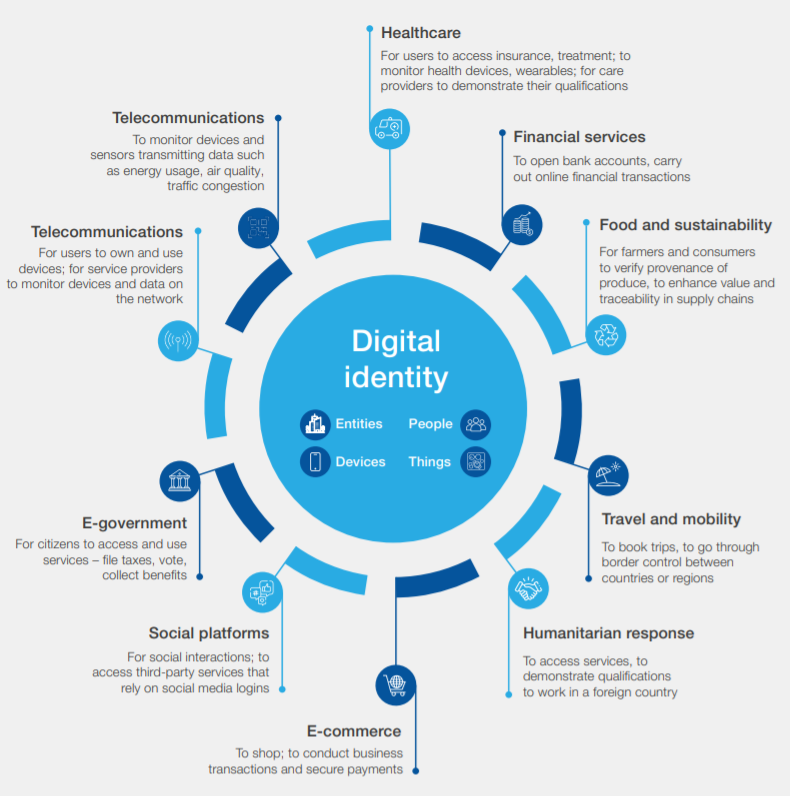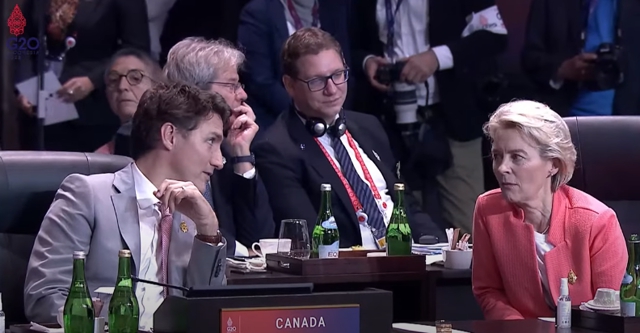The G20 promotes vaccine passports for future pandemic response following recommendations from the B20 Summit.
On the heels of the Business 20 (B20) Summit in Bali where Indonesian Health Minister Budi Gunadi Sadikin called for a “digital health certificate using WHO standards,” the Group of Twenty (G20) called for international collaboration to capitalize on the success of “digital COVID-19 certificates” for future pandemic response.
“We support […] efforts to strengthen prevention and response to future pandemics that should capitalize and build on the success of the existing standards and digital COVID-19 certificates” — G20 Bali Leaders’ Declaration, 2022
“We acknowledge the importance of shared technical standards and verification methods, under the framework of the IHR (2005), to facilitate seamless international travel, interoperability, and recognizing digital solutions and non-digital solutions, including proof of vaccinations,” reads paragraph 23 of the G20 Bali Leaders’ Declaration.
“We support continued international dialogue and collaboration on the establishment of trusted global digital health networks as part of the efforts to strengthen prevention and response to future pandemics, that should capitalize and build on the success of the existing standards and digital COVID-19 certificates.”
“We acknowledge the importance of shared technical standards and verification methods […] to facilitate seamless international travel, interoperability, and recognizing digital solutions and non-digital solutions, including proof of vaccination”

“Endeavour to move towards interoperability of systems including mechanisms that validate proof of vaccination” — G20 Bali Update, 2022
In separate but similar document, the G20 issued an update that adds:
“Endeavour to move towards interoperability of systems including mechanisms that validate proof of vaccination, whilst respecting the sovereignty of national health policies, and relevant national regulations such as personal data protection and data-sharing.”
The G20’s support for digital health certificates that include proof of vaccination, aka vaccine passports, follows recommendations coming out of the B20 Summit earlier this week.
“Adopt the Digital Documentation of COVID-19 Certificates” — B20 Policy Recommendation, 2022
According to the 132-page B20 Indonesia 2022 Final Communique: Policy Recommendations to the G20, member countries should “Promote further exchanges and strategic use and sharing of science, technology, and appropriate data for crisis detection, creating global coordination framework for future crisis mitigation.”
Those policy recommendations include, but are not limited to:
- Adopting the Digital Documentation of COVID-19 Certificates
- Creating robust guidelines on health emergency preparedness to ensure global coordinated response for future crises enhanced by a technology-enabled “always-on” global health infrastructure
- Implementing and extending the mutual recognition of COVID-19 vaccines
The B20 is the official G20 dialogue forum with the global business community and is tasked with formulating policy recommendations on designated issues.
On the first day of the B20 Summit, Indonesia’s Minister of Health Budi Gunadi Sadikin said that G20 countries should adopt a “digital health certificate using WHO standards” and that they were looking to introduce this type of vaccine passport into the “international health regulations” during the next World Health Assembly in Geneva.
“Let’s have a digital health certificate acknowledged by WHO — if you have been vaccinated or tested properly — then you can move around” — Budi Gunadi Sadikin, Indonesian Health Minister, B20 Summit 2022
“G20 countries have agreed this digital certificate using WHO standard, and we will sub it into the next World Health Assembly in Geneva as the revision to international health regulation” — Budi Gunadi Sadikin, Indonesian Health Minister, B20 Summit 2022
“Let’s have a digital health certificate acknowledged by WHO — if you have been vaccinated or tested properly — then you can move around,” said the Indonesian health minister.
“For the next pandemic, instead of stopping the movement of the people 100 percent […] you can still provide some movement of the people.
“Indonesia has achieved, G20 country has agreed, this digital certificate using WHO standard, and we will sub it into the next World Health Assembly in Geneva as the revision to international health regulation.
“Hopefully for the next pandemic, we can still see some movement of the people, some movement of the goods, and movement of the economy,” Sadikin concluded at the B20 Summit.
Prior to becoming Indonesia’s Minister of Health, Sadikin worked in high-level positions at Bank Bali, Bank Mandiri, ABN AMRO Bank Indonesia, PT Bank Danamon, and IBM.
“A health pass based solely on individual vaccination status may increase the risk of disease spread” — World Health Organization, August 2021
In August, 2021, the World Health Organization (WHO) published a 99-page guide book on the implementation of digital documentation of COVID-19 certificates, aka vaccine passports, stating that “a health pass based solely on individual vaccination status may increase the risk of disease spread.”
This is because the COVID-19 “vaccines” were never proven to prevent transmission nor infection, and it recently came to light in the European Parliament that Pfizer never even tested its product for stopping transmission.
The WHO knew from the very start.
On January 15, 2021, the WHO announced that State Parties should “not introduce requirements of proof of vaccination or immunity for international travel as a condition of entry.”
The reason?
“There are still critical unknowns regarding the efficacy of vaccination in reducing transmission and limited availability of vaccines.”
“Do not introduce requirements of proof of vaccination or immunity for international travel as a condition of entry as there are still critical unknowns regarding the efficacy of vaccination in reducing transmission” — World Health Organization, January, 2021
“These [vaccine] passports by nature serve as a form of digital identity” — World Economic Forum, February, 2022
Despite the knowledge on transmissibility being publicly available, both the B20 and G20 are still recommending proof of vaccination as a means to travel in the event of a future pandemic.
Whether or not future vaccines would be able to prevent transmission, vaccine passports have already laid the technical foundation for a different threat to humanity.
Vaccine passports, by their very nature, serve as a form of digital identity, according to the World Economic Forum (WEF).
A digital identity encompasses everything that makes you unique in the digital realm, and it is a system that can consolidate all of your most personal intimate data, including which websites you visit, your online purchases, health records, financial accounts, and who you’re friends with on social media.
“The G20 should support the design of policies aimed at promoting digital identities as a building block for data privacy and digital trust” — B20 Policy Recommendation, 2022

“This digital identity determines what products, services and information we can access – or, conversely, what is closed off to us” — World Economic Forum
One of the recommendations the B20 made to the G20 was to “support the design of policies aimed at promoting digital identities as a building block for data privacy and digital trust.”
Digital identities can be used to determine what products, services, and information are available to us, and they can give governments and corporations the power to incentivize, coerce, or otherwise manipulate human behavior under a system of social credit.
The G20 and B20 summits recommended and supported not just vaccine passports, but overall public and private digital identity schemes as well.
As editor Sikh for Truth points out in TruthTalk UK, “The globalists aren’t hiding their agenda anymore.
“For the ‘privilege’ of traveling, they want everyone to show their ‘digital papers’ and submit to an all-powerful digital ID system.”
The G20 is a forum comprising nineteen countries with some of the world’s largest economies, as well as the European Union (EU).
The countries are Argentina, Australia, Brazil, Canada, China, France, Germany, India, Indonesia, Italy, Japan, Mexico, Russia, Saudi Arabia, South Africa, South Korea, Turkey, the United Kingdom (UK), and the United States.











